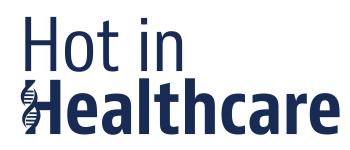The EU ended 2025 with a legislative blitz – AI, cybersecurity, data use, data protection, and medical devices were all subject to proposals promising to shake-up the status quo. On paper, it looks like progress: extended grace periods for high-risk AI, lighter admin under the AI Act, and clearer personal data rules. But scratch the surface, and the story changes. Coordination between proposals? Missing. Clarity? Questionable. And the biggest headache? Conflicting proposals on whether medical…
The German Accessibility Strengthening Act (BFSG), implementing the European Accessibility Act Directive (EU 2019/882), takes effect on June 28, 2025. While medical devices themselves are not within the scope as a product category, accessibility requirements may still apply where medical device software operates on EAA-covered hardware (e.g., smartphones, tablets). E-commerce services, including webshops selling medical devices directly to patients, must also be EAA-compliant. Certain components of medical or healthcare apps, particularly account creation and registration…

In brief The newly negotiated Coalition Agreement between Germany’s center-right CDU and center-left SPD political parties outlines a healthcare policy agenda with implications for pharma and med-tech companies. Key measures include reinforcing general practitioners as gatekeepers, expanding Hybrid-DRG hospital reimbursement aiming to shift care to outpatient settings, and reintroducing prompt payment “Skonto” discounts for Rx drugs granted to pharmacies. HTA (AMNOG) pricing rules will be maintained, though “guardrails” limiting reimbursement prices may possibly be reconsidered,…
From 2026, Hungarian legislation will allow access to health-related data stored in its National eHealth Infrastructure (EESZT) for AI development on a case-by-case basis. With this change, Hungary could capitalise on its investments into launching the EESZT platform in 2017 and standardising the health data collected by healthcare providers using the platform in the past years. In this article, we highlight the key differences compared to the EU’s European Health Data Space (EHDS) proposal and…
After months in the pipeline, it looks like the European Health Data Space (EHDS) is finally entering into force later this year. But what does this mean for your organisation? This is the fourth post in our EHDS series. In this post, we focus on the new product regime for electronic health record (EHR) systems, including the impact on wellness apps, AI systems and medical devices. We examine the latest publicly available draft, dated 24…
After months in the pipeline, it looks like the European Health Data Space (EHDS) is finally entering into force later this year. But what does this mean for your organisation? This is the third post in our EHDS series. In this post, we focus on the change that has been generating all the headlines: a new pathway to access health data for secondary uses like research and innovation. We examine the impact of this pathway…
After months in the pipeline, it looks like the European Health Data Space (EHDS) is finally entering into force later this year. But what does this mean for your organisation? In this post, we focus on the change that has been generating all the headlines: a new pathway to access health data for secondary uses like research and innovation. So what can you expect? This is the second post in our EHDS series, and we…
After months in the pipeline, it looks like the European Health Data Space (EHDS) is finally entering into force later this year. But what does this mean for you? This is the first post in our series on the EHDS. This post focuses on new health data rights, and we examine the latest publicly available draft, dated 24 April 2024. So what’s the impact on the pharmaceutical and medtech industry? In one way, it’s limited…
In 2021, the U.S. Food and Drug Administration (FDA), Health Canada, and the UK’s Medicines and Healthcare products Regulatory Agency (MHRA) collaboratively identified ten guiding principles for good machine learning practice (GMLP). These principles aim to ensure the safe, effective, and high-quality development of AI/ML technologies in medical devices. Building on GMLP, these agencies are now developing a proposed regulatory framework for modifications to Artificial Intelligence / Machine Learning (AI/ML) – Based Software as a…

The UK Medicines and Healthcare products Regulatory Agency (MHRA) on 30 April 2024 set out its strategic approach to artificial intelligence (AI). In particular, the MHRA welcomed the publication of the UK Government’s white paper ‘A pro-innovation approach to AI regulation’, published in 2023, and has taken significant steps in the past 12 months to adopt its recommendations in the work they do based on five key strategic principles. These principles encompass safety, security and robustness; appropriate…








